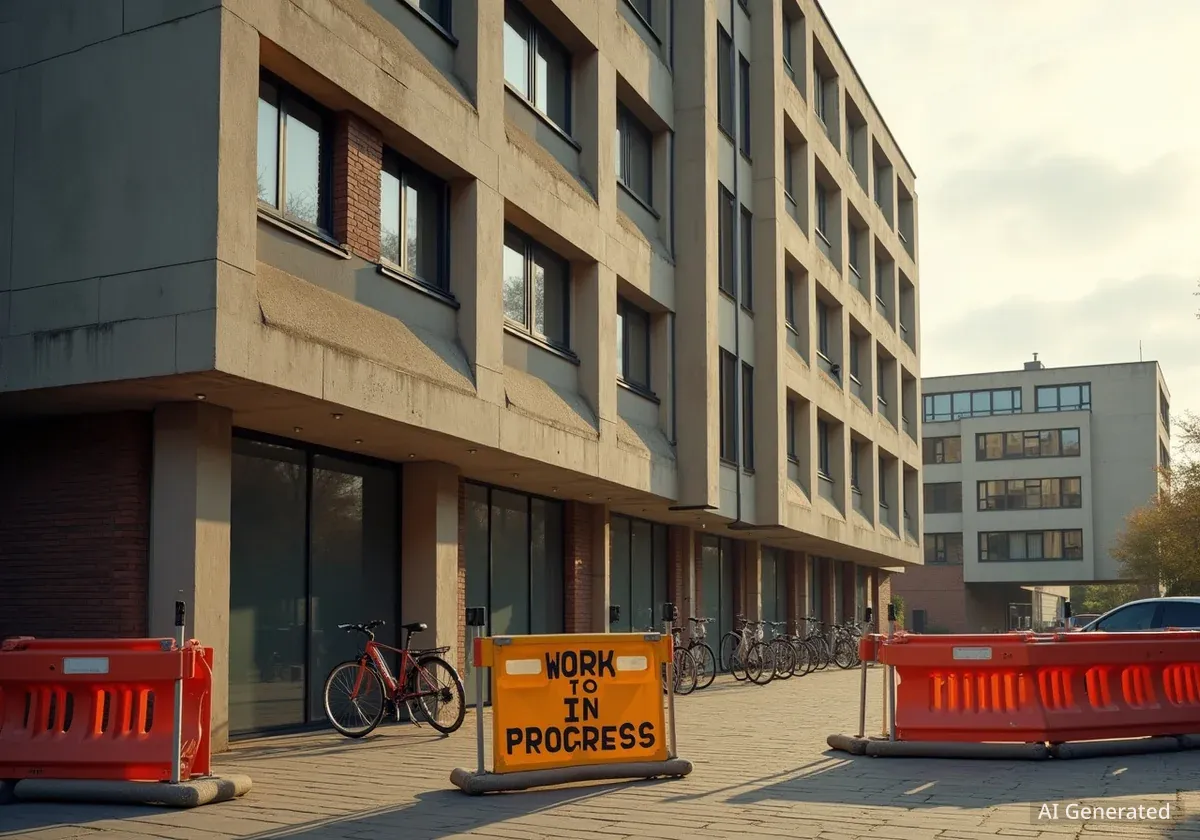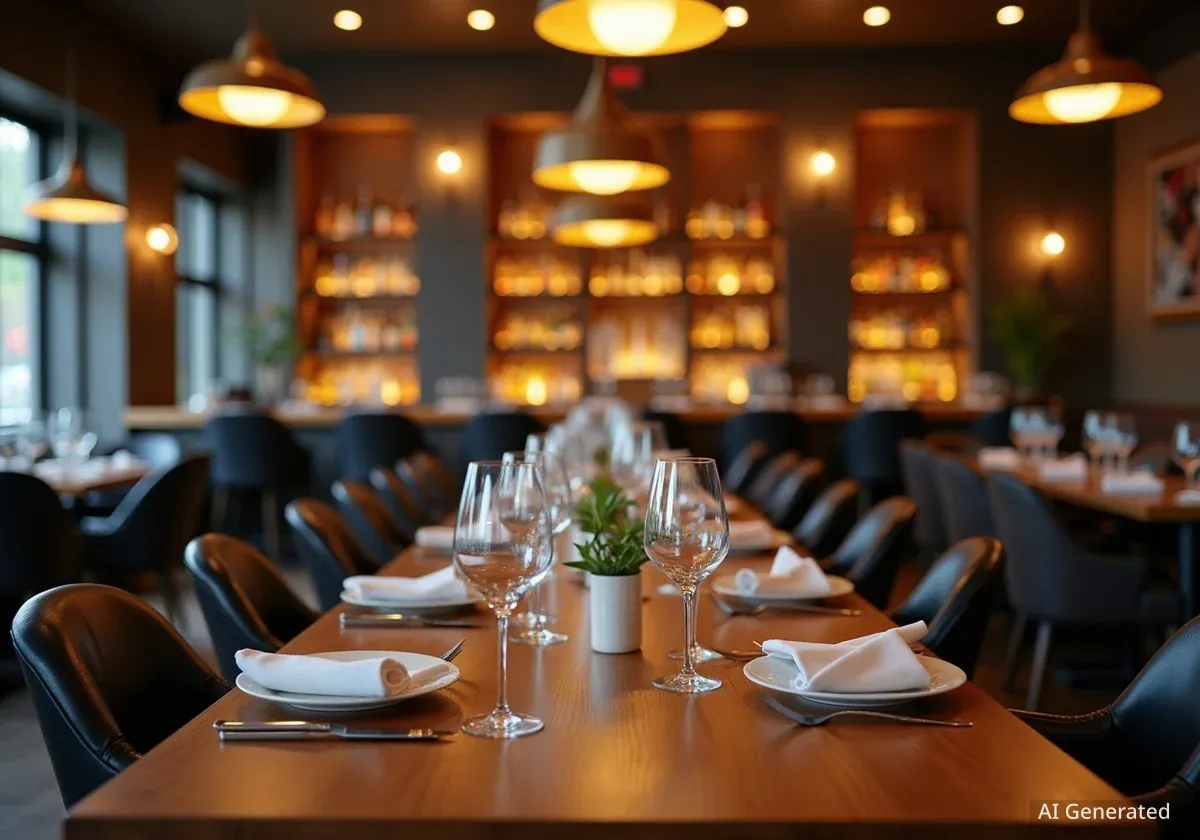The University of Liverpool has submitted plans to refurbish four student accommodation blocks from the 1970s, aiming to create 238 affordable bedspaces near the city centre. The project focuses on modernising existing buildings to meet a growing demand for cost-effective student housing.
In partnership with student accommodation specialist Kexgill, the university intends to update the four buildings located at the corner of Mount Pleasant and Oxford Street. This move represents a shift from previous proposals that considered demolition, now prioritising sustainability and preservation.
Key Takeaways
- Project Scope: Refurbishment of four student blocks to create 238 bedspaces.
- Accommodation Mix: The plan includes 35 studios and 49 cluster flats.
- Location: Corner of Mount Pleasant and Oxford Street, near the Metropolitan Cathedral.
- Focus: To provide affordable housing for overseas postgraduate students.
- Sustainability: The project opts to reuse existing 1970s structures instead of new construction.
New Life for City Centre Student Halls
The University of Liverpool is moving forward with a significant redevelopment project to address the need for affordable student accommodation. The plan targets four largely vacant buildings: Chestnut and Vine House, Walnut House, Cypress House, and Porter Lodge.
These structures, all built in the late 1970s, will be modernised and reconfigured to better suit contemporary student needs. The proposed development, named Mulberry Court, will offer a total of 238 beds, providing a much-needed boost to the city's student housing stock.
The project's location is highly strategic, situated close to the university campus and Liverpool's iconic Metropolitan Cathedral, making it a convenient option for students.
Project by the Numbers
- 238 total bedspaces to be created.
- 4 existing buildings to be refurbished.
- 49 cluster flats planned, with 3 to 6 bedrooms each.
- 35 self-contained studio apartments.
- 45+ years since the buildings were originally constructed.
An Affordable Alternative to New Builds
A primary driver for the project is the creation of affordable living spaces. Planning documents highlight that the new accommodation will be aimed at overseas postgraduate students, particularly from Africa and South Asia, who are seeking more budget-friendly options.
This initiative directly contrasts with the trend of new-build student blocks, where weekly rents can often exceed £200. By refurbishing existing buildings, the university and Kexgill aim to offer a high-quality yet more accessible product.
The focus on affordability addresses a critical gap in the market, ensuring Liverpool remains an attractive destination for international students from diverse economic backgrounds.
Shift Towards Sustainability and Preservation
The decision to refurbish rather than demolish marks a significant change in strategy. In 2021, an application was submitted for the demolition of Chestnut and Vine House, but it was later withdrawn. The current plan embraces a more sustainable approach by reusing the existing building fabric.
Improvements to the buildings' insulation and energy systems are a core part of the proposal, which will enhance their environmental performance and reduce their carbon footprint for years to come.
Architectural Significance
According to a planning statement, the buildings hold "particular local interest." They were designed by Gerald R Beech, who is described as an "influential modernist architect." This historical context adds another layer of importance to the preservation and careful modernisation of the structures.
The planning statement notes the value of preserving the work of an influential modernist architect, making the case for refurbishment over demolition.
Project Team and Public Information
The project is a collaborative effort involving several key partners. The University of Liverpool is working alongside specialist student accommodation provider Kexgill to deliver the scheme.
The design for the refurbishment is being led by Building Design Northern, while Maze Planning Solutions is advising on the planning aspects of the development. This team brings together expertise in architecture, planning, and student housing management to ensure the project's success.
Members of the public and interested parties can view the detailed plans on the Liverpool City Council’s planning portal. The application is filed under the reference number 25F/2205.





